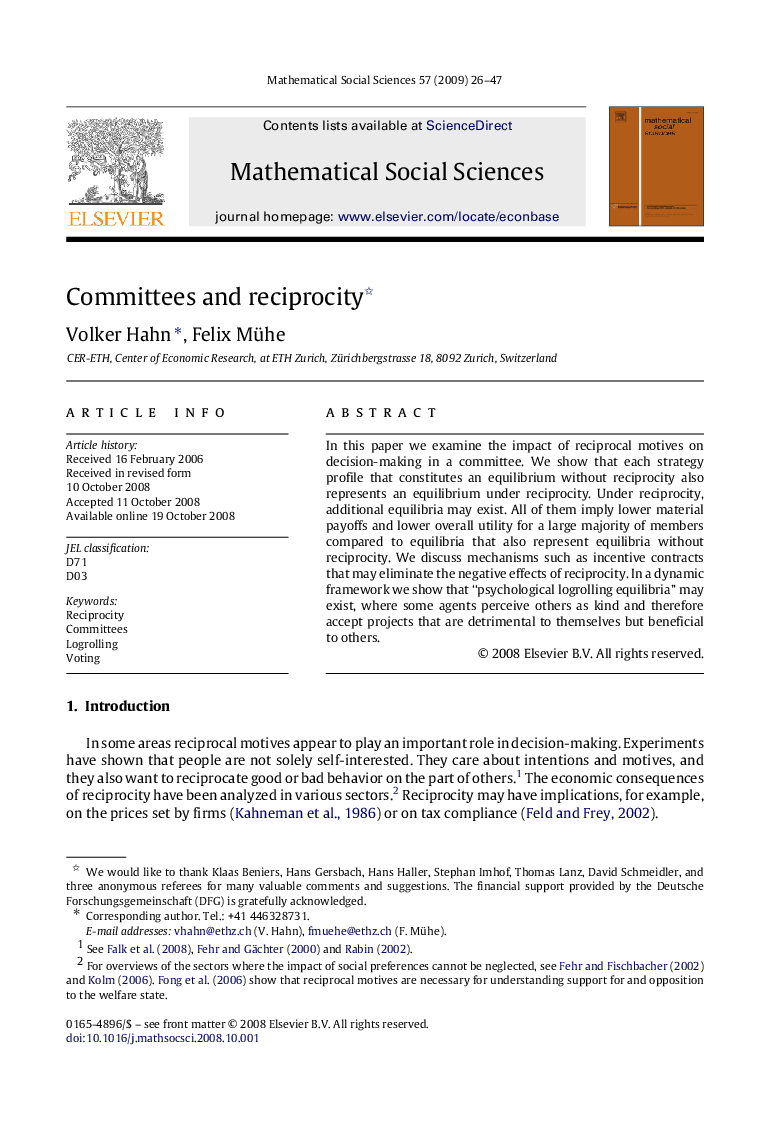| Article ID | Journal | Published Year | Pages | File Type |
|---|---|---|---|---|
| 972786 | Mathematical Social Sciences | 2009 | 22 Pages |
Abstract
In this paper we examine the impact of reciprocal motives on decision-making in a committee. We show that each strategy profile that constitutes an equilibrium without reciprocity also represents an equilibrium under reciprocity. Under reciprocity, additional equilibria may exist. All of them imply lower material payoffs and lower overall utility for a large majority of members compared to equilibria that also represent equilibria without reciprocity. We discuss mechanisms such as incentive contracts that may eliminate the negative effects of reciprocity. In a dynamic framework we show that “psychological logrolling equilibria” may exist, where some agents perceive others as kind and therefore accept projects that are detrimental to themselves but beneficial to others.
Related Topics
Physical Sciences and Engineering
Mathematics
Applied Mathematics
Authors
Volker Hahn, Felix Mühe,
